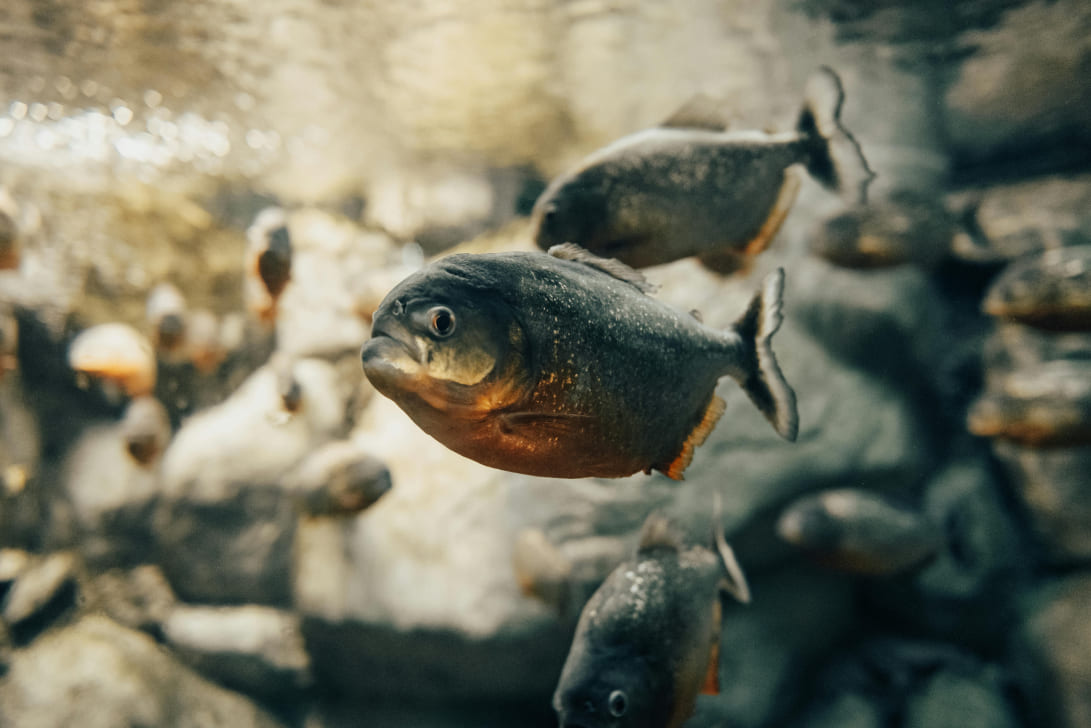Marine Animal Protection

Piranha
The common piranha, found in South America's freshwater rivers, is a highly misunderstood species. Often portrayed as ferocious predators, piranhas are, in reality, scavengers that play a vital role in maintaining the health of aquatic ecosystems. They clean rivers and lakes by feeding on dead or decaying matter, which helps prevent the spread of disease.
Piranha populations face threats from pollution, habitat destruction, and overfishing. The rivers they inhabit are increasingly contaminated with agricultural runoff, industrial waste, and plastic pollution, which can poison these fish and disrupt their food chains. Additionally, dam construction fragments their habitats, making it harder for them to thrive.
To protect piranhas and their habitats, conservation efforts should focus on improving water quality, regulating fishing practices, and maintaining the natural flow of rivers. By addressing these issues, we can ensure that piranhas continue to perform their essential ecological role.
The Urgent Need to Protect Our Oceans
The oceans are the lifeblood of our planet. Covering over 70% of Earth's surface, they regulate the climate, provide oxygen, and support an incredible diversity of life. Yet, despite their importance, oceans are under severe threat. Pollution, climate change, overfishing, and habitat destruction are pushing marine ecosystems to their limits. Protecting our oceans is not just an environmental priority—it’s a necessity for the survival of all life on Earth.
More Details
